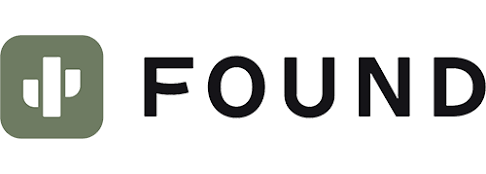Opening a Business Bank Account: What You Need

Our evaluations and opinions are not influenced by our advertising relationships, but we may earn a commission from our partners’ links. This content is created by TIME Stamped, under TIME’s direction and produced in accordance with TIME’s editorial guidelines and overseen by TIME’s editorial staff. Learn more about it.
One of the biggest challenges of running a business is managing cash flow and keeping track of spending. A dedicated business bank account can make that easier to do and it can save you some trouble at tax time if you need to track deductible expenses.
What do you need to open a business bank account? And how do you decide where to open a bank account for your business?
Knowing what to expect can save some time when you're ready to get your account up and running.
Found is a financial technology company, not a bank. Business banking services are provided by Piermont Bank, Member FDIC. The funds in your account are FDIC-insured up to $250,000 per depositor for each account ownership category. The Found Mastercard Business debit card is issued by Piermont Bank pursuant to a license from Mastercard Inc. and may be used everywhere Mastercard debit cards are accepted.
*Advanced, optional add-on bookkeeping software available with a Found Plus subscription for $19.99/month or $1149.99/year. There are no monthly account maintenance fees, but transactional fees for wires, instant transfers, and ATM apply. Read more here.
Banks and credit unions can set the guidelines for what you'll need to open a business bank account. If you've already chosen a bank, it should be able to tell you exactly what you'll need in terms of documentation.
Typically, banks expect you to provide certain details about yourself and the business. You'll also need to meet the minimum opening deposit requirement if there is one.
Here's a more detailed list of what is usually required for opening a business bank account:
The first thing you might need to open a business bank account is an Employer Identification Number (EIN) or Federal Tax Identification Number (FTIN). These numbers, issued by the IRS, are used to identify business entities for tax purposes.
You can apply for an EIN or FTIN online through the IRS website. It's free to apply and your EIN can be issued instantly.
Whether you need an EIN or not depends on your business type. Sole proprietors, for example, generally don't need them if they don't have employees. In that case, you could apply for a business bank account with your Social Security number instead.
Banks usually need certain paperwork that shows your business exists legally. The list of documents that a bank may ask for can include:
Should you operate under a “Doing Business As” name, you'll also need to share that with your bank.
If you haven't yet filled out the necessary paperwork to register your business, you may need to backtrack a little before you can open a business bank account. Your state's Secretary of State office or revenue agency should be able to offer guidance on how to register your business where you live.
You'll also need to prove to the bank that you are who you say you are to open a new business account. Banks usually expect you to have a government-issued ID, which can include:
Again, if you're setting up a business bank account as a sole proprietor you'll also need to share your Social Security number.
It's not uncommon for banks to require a minimum opening deposit for new business accounts. The amount you'll need to have can depend on the bank.
You could make your minimum deposit via ACH transfer if you're opening a business bank account online. If you're opening your account in person at a branch, you could deposit a check or cash instead.
Opening a business bank account isn't that different from opening a personal bank account. The main distinction lies in the type of information you'll need to provide to the bank.
Here's how the process typically works:
Opening a business bank account online can save time since you don't have to visit a branch. You can easily transfer money from your current bank to fund your new account. You'll just need the bank account number and routing number for the financial institution that the money is coming from.
There are plenty of business bank accounts to choose from, including ones offered by brick-and-mortar banks, online banks, and credit unions. You might also consider using a business banking app if you're looking for an alternative to traditional banking options.
Here are three of the best business bank accounts, based on the features offered and the fees you'll pay.
Lili is a fintech platform that provides business banking services through Choice Financial Group, a Federal Deposit Insurance Corporation (FDIC)-member bank. Lili users can get a business checking account, bookkeeping tools, and tax-planning tools all in one place. Some of the features that make Lili unique include:
You can add a business savings account to your checking account and Lili pays a competitive annual percentage yield (APY) on balances. There's also the option to upgrade to Lili Premium to receive priority customer support when you need it.
Revolut is another fintech platform that offers business banking services. It's designed for businesses that operate internationally. You can transfer money securely across borders and access funds in more than 25 currencies. Revolut also makes it easier to accept payments from different countries.
You might appreciate the team spending feature that's included with Revolut debit cards if you have one or more employees. This feature allows you to set spending permissions and limits while tracking expenses for each linked card in one place.
Revolut's basic plans for companies and freelancers are free. If you need more features or tools, you can upgrade to a paid plan.
If you prefer to keep accounts at a traditional bank, U.S. Bank has several small business checking options to choose from. There are accounts for:
U.S. Bank also offers specialty accounts for nonprofits and for businesses that are looking for premium features and support. All of the bank's business accounts carry a monthly maintenance fee, but there are numerous ways to waive them.
You can manage your accounts online or through the U.S. Bank mobile app. You also have the convenience of visiting a U.S. Bank branch or ATM near you.
It's important to take your time and compare business bank accounts to find the right one for your needs. Here are some of the questions you might consider when shopping around for business banking options.
It's also a good idea to consider which features or benefits would be most useful to have, based on the type of business you run.
If you have employees, for example, you might prefer to keep your accounts at a bank that offers payroll services. Or you might lean toward a bank that specializes in addressing the unique needs of certain industries or business types.
Starting a business can be exciting and a little stressful since there may be a lot to do before you officially start operating. Opening a business bank account is an important step so that you can begin receiving payments and paying expenses. While it might feel a little intimidating, it's not that difficult to do once you know what's required.
Business accounts can include checking accounts, savings accounts, and money market accounts. Banks can also offer specialty accounts and services to businesses, such as merchant accounts and credit card accounts. The common thread is that these accounts are specifically designed to meet the needs of business owners.
If you've tried to open a business bank account and been denied, it may be because you're lacking the necessary documentation or information that the bank requires. Banks may also deny you a business account if the bank views your venture as being too risky or doesn't work with the industry that you operate in.
You don't need a separate bank account to start a business, but it's a good idea to have one for a few reasons. For one thing, a separate business bank account can make it easier to track expenses and simplify reporting at tax time. For another, a business bank account can provide some liability protection that a personal bank account does not.
A business bank account could also make it easier to get approved for small business loans or credit cards. Lenders may ask to see financial records like cash flow statements or profit and low statements, which are easier to generate when you're keeping track of expenses in a separate account.
The information presented here is created by TIME Stamped and overseen by TIME editorial staff. To learn more, see our About Us page.




